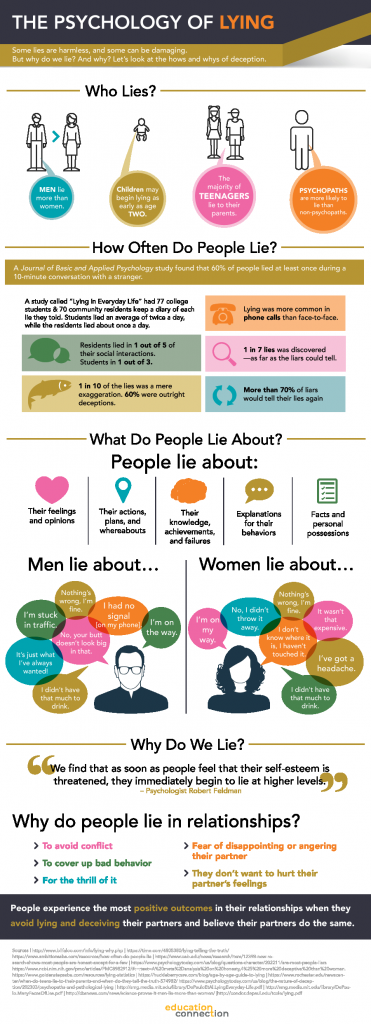Why Don’t Businesses Like Unions? 7 Hidden Disadvantages Uncovered
Businesses often dislike unions because they can disrupt the balance of power in the employer-employee relationship and make it challenging to directly manage and incentivize employees. Unions can also increase operational costs and limit employers’ flexibility in making decisions.
Unions have been a thorn in the side of many businesses due to their impact on workplace dynamics and financial implications. Unions can discourage individuality, promote groupthink, and hinder a collaborative culture within organizations. Additionally, they often resist change, making it difficult for businesses to adapt to evolving market conditions.
This resistance to change can hinder innovation and organizational progress. Despite the potential benefits of collective bargaining, many businesses see unions as a barrier to effective management and operational flexibility.
Disadvantages Of Unions For Businesses
Labor unions pose several disadvantages for businesses. They discourage individuality, promote groupthink, hinder collaboration, and resist change. Additionally, unions make it difficult for companies to identify and nurture leadership potential. These factors contribute to the apprehension that businesses have towards labor unions.
Discouragement Of Individuality
One of the disadvantages that businesses face when dealing with unions is the discouragement of individuality. Unions often prioritize collective decision-making and uniformity, which can stifle the unique contributions of individual employees. Rather than valuing each employee’s distinct skills and ideas, unions may promote a sense of groupthink where conformity takes precedence over innovation and creativity. This can limit the company’s ability to adapt to changing market conditions and hinder its competitiveness.
Impact On Collaborative Culture
Unions can also have a negative impact on the collaborative culture within a business. While collaboration is essential for fostering teamwork and achieving shared goals, unions can influence work norms that prioritize the rights and demands of union members over collaboration and cooperation. This can create a divide between union members and non-union employees, leading to an “us versus them” mentality that hampers effective teamwork. Such divisions can erode trust, hinder communication, and ultimately impede the company’s ability to achieve synergy and maximize productivity.
Difficulty In Identifying Leadership Potential
Another challenge businesses face when dealing with unions is the difficulty in identifying leadership potential among employees. Unions often have strict seniority rules and job classifications that can restrict opportunities for recognizing and nurturing emerging leaders. This can create a bottleneck in the development of future leaders within the organization and limit the company’s ability to effectively groom and promote talented individuals. Without a clear pathway for identifying and nurturing leadership potential, businesses may find it challenging to maintain a strong leadership pipeline and adapt to future leadership needs.
Resistance To Change
Resistance to change is a common issue faced by businesses when dealing with unions. Unions tend to prioritize job security and resist changes that may disrupt established work practices or lead to employee layoffs. While stability is important, businesses also need to be able to adapt to evolving market conditions, technological advancements, and customer demands. The resistance to change from union members can hinder the company’s ability to innovate, adopt new technologies, and remain competitive in a rapidly changing business landscape. As a result, businesses may find it challenging to implement necessary changes and stay ahead of the curve.
Reasons Why Businesses Oppose Unions
One reason why some businesses oppose unions is because they prefer having a direct relationship with their employees. Additionally, unions can lead to increased expenses for businesses.
Desire For Direct Relationship With Employees
One reason why businesses oppose unions is their desire for a direct relationship with their employees. Businesses may believe that unions interfere with the direct communication and engagement between employers and employees.
Increased Costs
Another factor contributing to opposition towards unions is the concern about increased costs. Businesses fear that unionization can lead to higher wages, benefits, and operational expenses, which can impact profitability.
Potential Impact On Employee-incentivization
Businesses may also oppose unions due to the potential impact on employee incentivization. They worry that union structures may hinder the effectiveness of incentive programs and performance-based rewards for employees, affecting motivation and productivity.
Factors Contributing To Low Union Membership
There are several factors contributing to the low membership of unions in businesses. The cost of dues, difficulty of organizing workplaces, and a perceived lack of need for collective bargaining are key reasons behind the low union membership rate.
Cost Of Dues
Unions often require members to pay dues for membership, which can lead to financial strain for individuals, especially those with lower incomes. The cost of dues can deter some workers from joining unions, particularly if they do not perceive significant benefits or support from union membership.
Difficulty Of Organizing Workplaces
Organizing a workplace for union representation can be challenging due to resistance from employers, fear of retaliation, and complex labor laws. This difficulty can discourage employees from attempting to unionize, particularly in industries with a history of anti-union practices.
Perceived Lack Of Need For Collective Bargaining
In some industries, workers may not see the necessity of collective bargaining to attain fair wages, benefits, and equitable treatment. They may believe that they can negotiate directly with their employers, or they may not face significant workplace issues that prompt them to seek collective representation.

Credit: www.educationconnection.com
Understanding Business Response To Unions
Advice On Union Avoidance
When it comes to unions, many businesses seek to avoid them altogether. To accomplish this, employers often follow a set of strategies to discourage unionization. One piece of advice commonly given is to review policies and ensure that they align with the company’s stance against unions. Another effective approach is to benchmark wages and benefits to offer competitive compensation packages, making it less likely for employees to seek collective bargaining.
Furthermore, companies may conduct employee management surveys to gauge satisfaction and address any concerns before they escalate to unionization. Training management on positive employee labor relations is another valuable step in preventing unions. By equipping managers with conflict resolution skills and fostering healthy communication channels, companies can actively work towards creating a positive work environment.
Analyzing an organization’s weaknesses can also contribute to union avoidance. By identifying potential areas of concern, companies can proactively address them, implementing effective measures to mitigate the risk of unionization. This strategic approach allows businesses to craft an inclusive work culture that satisfies employee needs and reduces the appeal of unions.
Controversial Actions Employers May Take
In their efforts to resist unions, some employers resort to controversial actions that can negatively impact employee morale and workplace dynamics. While these actions may vary, a few common practices include implementing anti-union campaigns and exerting undue pressure on employees to discourage unionization.
Some companies hire third-party consultants to design and execute anti-union campaigns, employing various tactics to dissuade employees from forming unions. These campaigns may involve disseminating information that highlights the potential disadvantages of union membership or emphasizing the company’s commitment to employee welfare and job security without union representation.
Additionally, employers may engage in activities that intimidate or coerce employees. These actions can include surveillance of union activities, interrogating employees about union involvement, and even terminating individuals suspected of unionization efforts. Such practices not only undermine employee trust but can also lead to legal repercussions and damage a company’s reputation.
Debate On Communication Of Downsides And Upsides
When it comes to discussing unions, there is an ongoing debate on how businesses should communicate the downsides and upsides to their workforce. Some argue that employers should be transparent and provide factual information about the potential drawbacks of unions. This approach aims to educate employees and encourage them to make informed decisions.
On the other hand, critics believe that emphasizing only the downsides can create a biased narrative that may sway employees against unions without fully considering the benefits they can bring. Proponents of this view argue that businesses should also communicate the upsides of union representation, such as collective bargaining power, protection against unfair labor practices, and improved job security.
The key lies in finding a balance between presenting the downsides and upsides of unions, allowing employees to consider all aspects and make an informed choice. By engaging in open and respectful dialogue, businesses can foster a culture of transparency and allow employees’ voices to be heard.
Why Big Tech Companies Oppose Unions
Big tech companies oppose unions because they want to maintain a direct relationship with their employees and avoid the potential costs associated with unionization. This allows them to have more control and influence over their workforce, impacting worker incentivization and the balance of power in the employer-employee relationship.
Shift In Power Balance
The primary reason why big tech companies oppose unions is because they fear a shift in power balance. Unions give workers a collective voice and bargaining power, which can challenge the authority and control of the company. Tech companies, known for their hierarchical structures and top-down decision-making, prefer to maintain control over their employees.
Concerns About Worker Incentivization
Another reason why big tech companies oppose unions is their concern about worker incentivization. Unions often negotiate for higher wages, better benefits, and improved working conditions. While this may seem beneficial for employees, companies worry that it could lead to diminished motivation and productivity among workers. These companies believe that performance-based incentives are more effective in driving employee engagement and achieving business goals.

Credit: thetalentgames.com

Credit: www.jaacap.org
Conclusion
In today’s business landscape, it is not uncommon to find a dislike for unions among businesses. Organizations often cite the impact on company culture, discouragement of individuality, and resistance to change as major disadvantages. Additionally, some industries may not see the need for unions due to high wages, benefits, and equity already in place.
Companies may also prefer to maintain a direct relationship with their employees. While the reasons for this opposition may vary, it is clear that unions can disrupt the balance of power in the employer-employee relationship. Businesses must carefully consider their response to unionization and ensure they do not engage in illegal actions.







